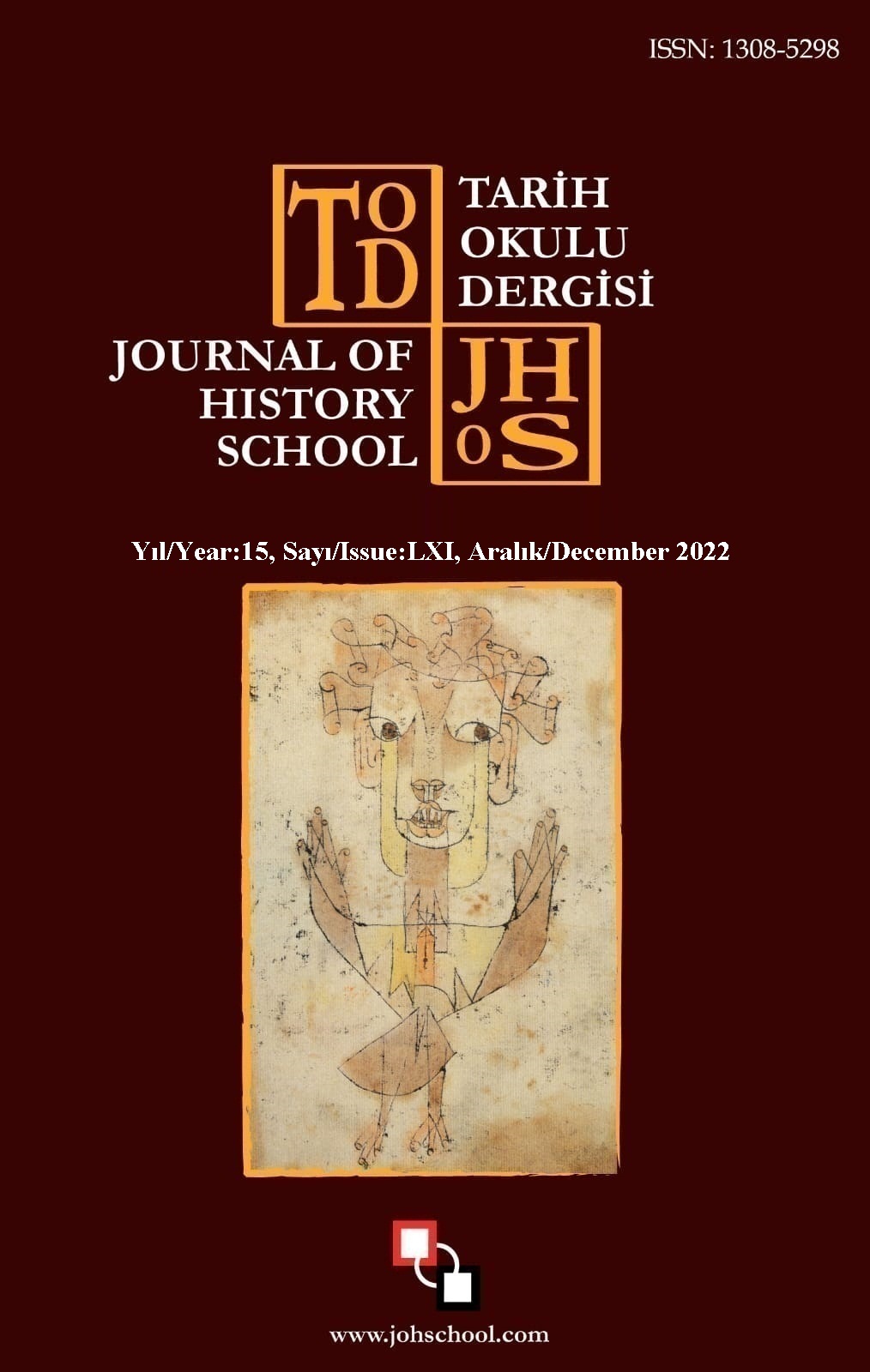Author :
Abstract
Eğitimle ilgili kavram, kuram ve sistem tartışmaları yüzyıllardır sürmektedir. Bu çalışmada Platon ve Sokrates’in genelde eğitim anlayışları ile özelde beden eğitimi ve jimnastik anlayışları incelenmiştir. Bu bakımdan çalışmanın kapsamı bu iki düşünürün eğitim, beden eğitimi ve jimnastik anlayışıyla sınırlı tutulmuştur. Ayrıca, düşünürlerin, felsefenin diğer alanlarına ilişkin görüşlerine de yer verilmiştir. Platon ve Sokrates’in eğitime dair görüşleri bir bütün olarak ele alındığında eğitim; insanın doğasında var olan, onları iyiye ve doğruya yönlendiren süreçtir. Beden eğitimi ve jimnastik ise Platon’a göre ağırlıklı olarak savaşa hazır olma durumu çerçevesinde değerlendirilirken, Sokrates bunu güçlü ve sağlıklı olma çerçevesinde değerlendirmektedir. Platon, beden eğitimi ve jimnastiği, insanı bir bütün olarak erdemli kılmaya çalışmaktadır. Bu yönüyle onun jimnastik eğitimi, insanın sadece fiziki yönünü değil, aynı zamanda içsel yönünü de içeren bir yetiştirmeyi ifade etmektedir. Bir bütün olarak iyi olmak, güzelliğe ulaşmak ve ahenge ulaşmak, bedeni güzelleştiren jimnastik eğitimi ile ruhu mükemmelleştiren müzik eğitiminin birlikte ve uyum içinde yapılmasına bağlıdır. Sokrates’e göre beden eğitimi ve jimnastik konusunda adı geçen bazı hastalıkların olduğunu ve vücudun tekrar düzene girebilmesi için ilk önce ruhunda düzelmesi gerekeceğini ifade ederek vücut ve ruh arasındaki bağa dikkat çekmektedir. Ruh iyileşirken sihirli ifadelere gereksinim duyduğunu ifade eden Sokrates, güzel ifadelerin önemli olduğunu da belirtmektedir. Böylece ruhun güzel ifadelerle olgunlaşacağını, bilgeleşeceğini ve vücudun düzelmesine de destek olacağını belirtmektedir. Beden eğitimi ile tıp ilişkisi kurarak beden eğitiminin tıptan önce geldiğini savunmaktadır.
Keywords
Abstract
Discussions on concepts, theories and systems related to education have been going on for centuries. In this study, Plato and Socrates' understanding of education in general and physical education and gymnastics in particular were examined. In this respect, the scope of the study is limited to the education, physical education and gymnastics understanding of these two thinkers. However, where necessary, the views of thinkers on other fields of philosophy are also included. When Plato and Socrates' views on education are considered as a whole, education, it is the process that exists in human nature and directs them to the good and the right. According to Plato, physical education and gymnastics are evaluated mainly within the framework of being ready for war, while Socrates evaluates this within the framework of being strong and healthy. Plato, physical education and gymnastics, tries to make human as a whole virtuous. In this respect, his gymnastics training expresses an education that includes not only the physical side of the human but also the inner side of the person. To be good as a whole, to achieve beauty and harmony, depends on performing gymnastics training that beautifies the body and music training that perfects the soul together and in harmony. According to Socrates, he states that there are some diseases mentioned in physical education and gymnastics and that in order for the body to get back in order, the soul must first be healed, and draws attention to the connection between the body and the soul. Expressing that the soul needs magical expressions while healing, Socrates also states that beautiful expressions are important. In this way, it states that the soul will mature, become wiser and support the recovery of the body with beautiful expressions. By establishing a relationship between physical education and medicine, he argues that physical education comes before medicine.





